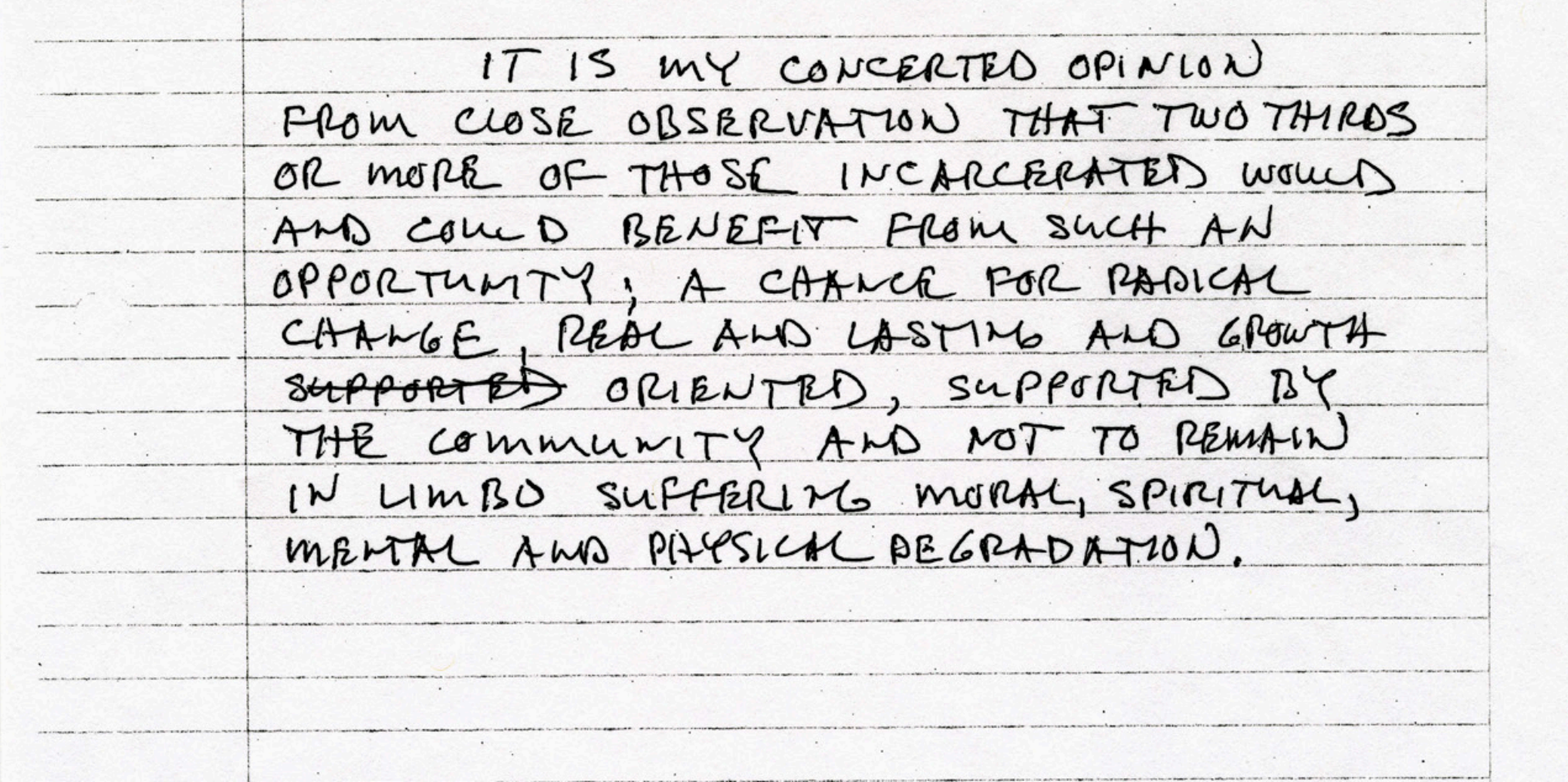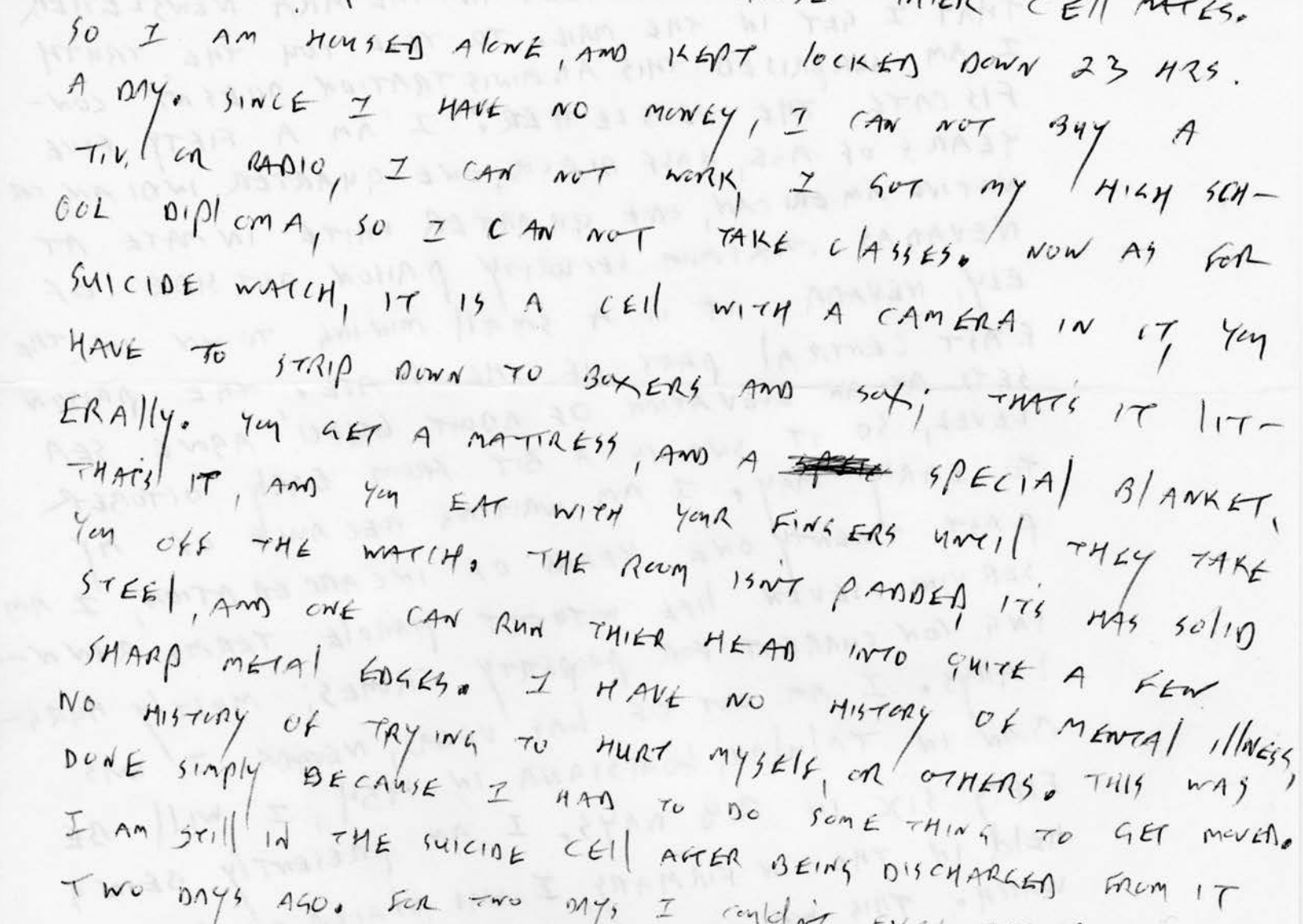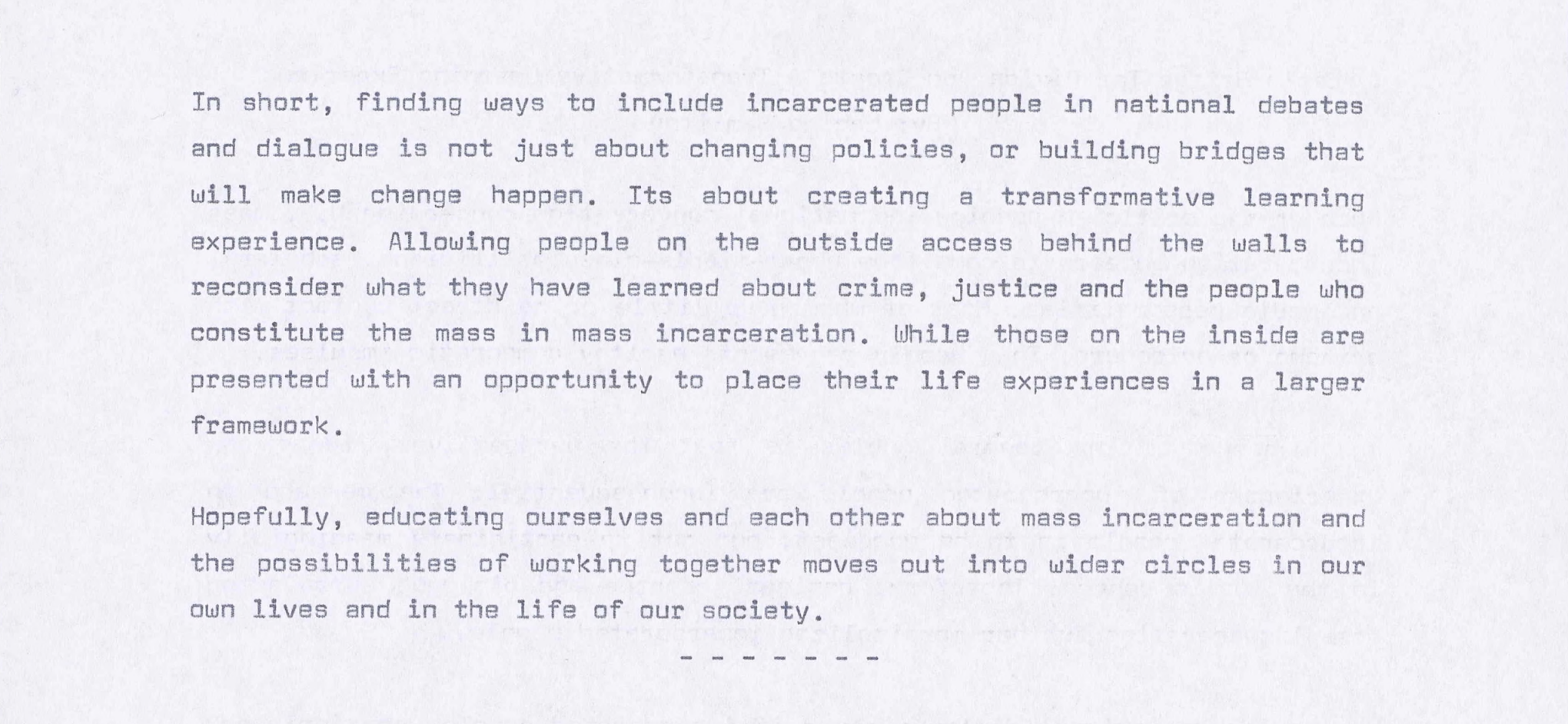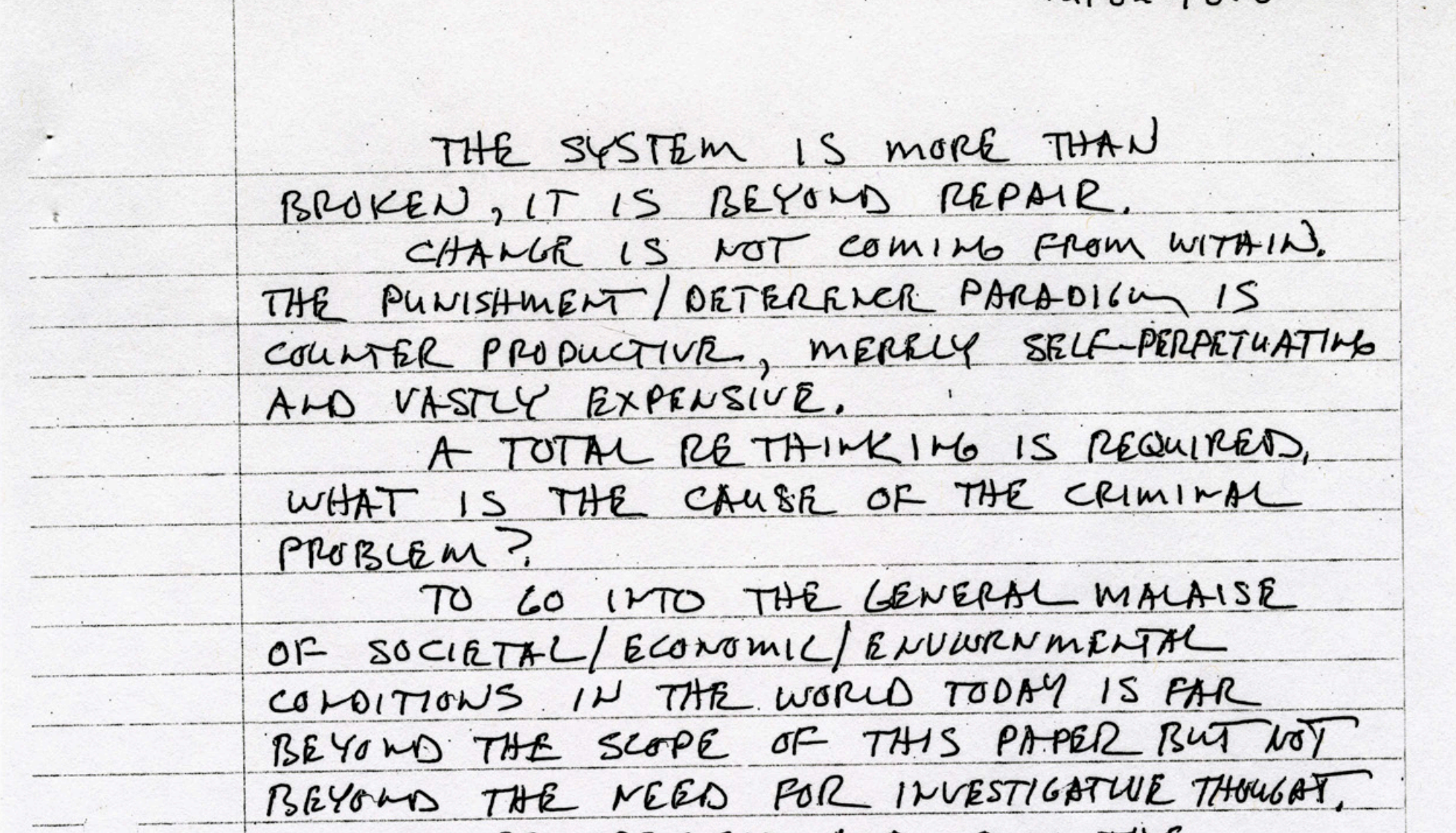Prisons embody some of the most intractable problems in our nation. But prisons are also places of creative contestation, where new political visions emerge, and from which calls emerge to transform the world outside their walls.
It is a genuine crisis that so much of public debate takes place without the benefit of the insight of people who are imprisoned. Even now, against the backdrop of an insurgent movement against mass confinement, most of what is widely available about prisons is produced by those in the free world. This is in no small part because imprisoned people face extreme barriers to public narration of their experience. Yet without their witness, it is impossible for the public to have a realistic representation of the carceral system—its violence, exploitation, and inequality.

This is a central argument of Lacino Hamilton’s 2016 essay “Let’s Bridge the Divide and Create a Transformative Learning Experience,” written when Hamilton was incarcerated. The essay speaks to why this is vital not only for our public accounting of the prison, but also because it drives a two-way process of learning and reflection. He writes:
Finding ways to include incarcerated people in national debates and dialogue is not just about changing policies, or building bridges that will make change happen. It’s about creating a transformative learning experience. Allowing people on the outside access behind the walls to reconsider what they have learned about crime, justice and the people who constitute the mass in mass incarceration. While those on the inside are presented with an opportunity to place their life experiences in a larger framework.
Hamilton’s essay is one of thousands written by incarcerated writers and housed in the American Prison Writing Archive (APWA)—and it perfectly articulates the aims of the archive. Founded in 2012, the APWA is a free, Internet-based, fully searchable digital archive of nonfiction essays and poetry offering firsthand testimony to the conditions experienced by incarcerated people and their ideas, critiques, and hopes. The APWA has recently moved from its original home at Hamilton College to Johns Hopkins University and this week, on April 3, 2023, launched the next iteration of its publicly accessible digital platform. The APWA offers a site for imprisoned people to present themselves as creators of knowledge of the carceral state, to join in chorus with a wider body of collective witness and secure their work for posterity.
These writers cast off their positions as objects of study and claim the power to stand as witnesses to their own lives, their conditions, and to their essential roles as collective creators of knowledge from inside the grip of the carceral state.

You can read more of Hamilton’s essay and other firsthand experiences of the carceral system in the APWA’s new digital archive, prisonwitness.org. There you will encounter work by Hamilton and over a thousand other visionaries. And the archive continues to grow. Subjects include day-to-day life, cultural criticism, activism, the psychological impact of imprisonment, and much more. Contributions come from incarcerated individuals from across the United States, from a wide range of backgrounds and experiences.
We encourage Inquest readers to think of the APWA as a resource for activism, community-building, teaching, and research—to assist with the goal of making sure that the perspectives of incarcerated people are included in every conversation.

The American Prison Writing Archive, founded in 2012 and now housed at Johns Hopkins University, is the largest body of prison witness ever amassed, and the first fully searchable digital archive of nonfiction essays and poetry by incarcerated people. It currently includes over 3,000 essays by incarcerated writers from more than 400 prison facilities, and it is growing every day. The writing of this article was coordinated by Hannah Young, the APWA’s associate manager, on behalf of the APWA leadership team.
Header image: American Prison Writing Archive
